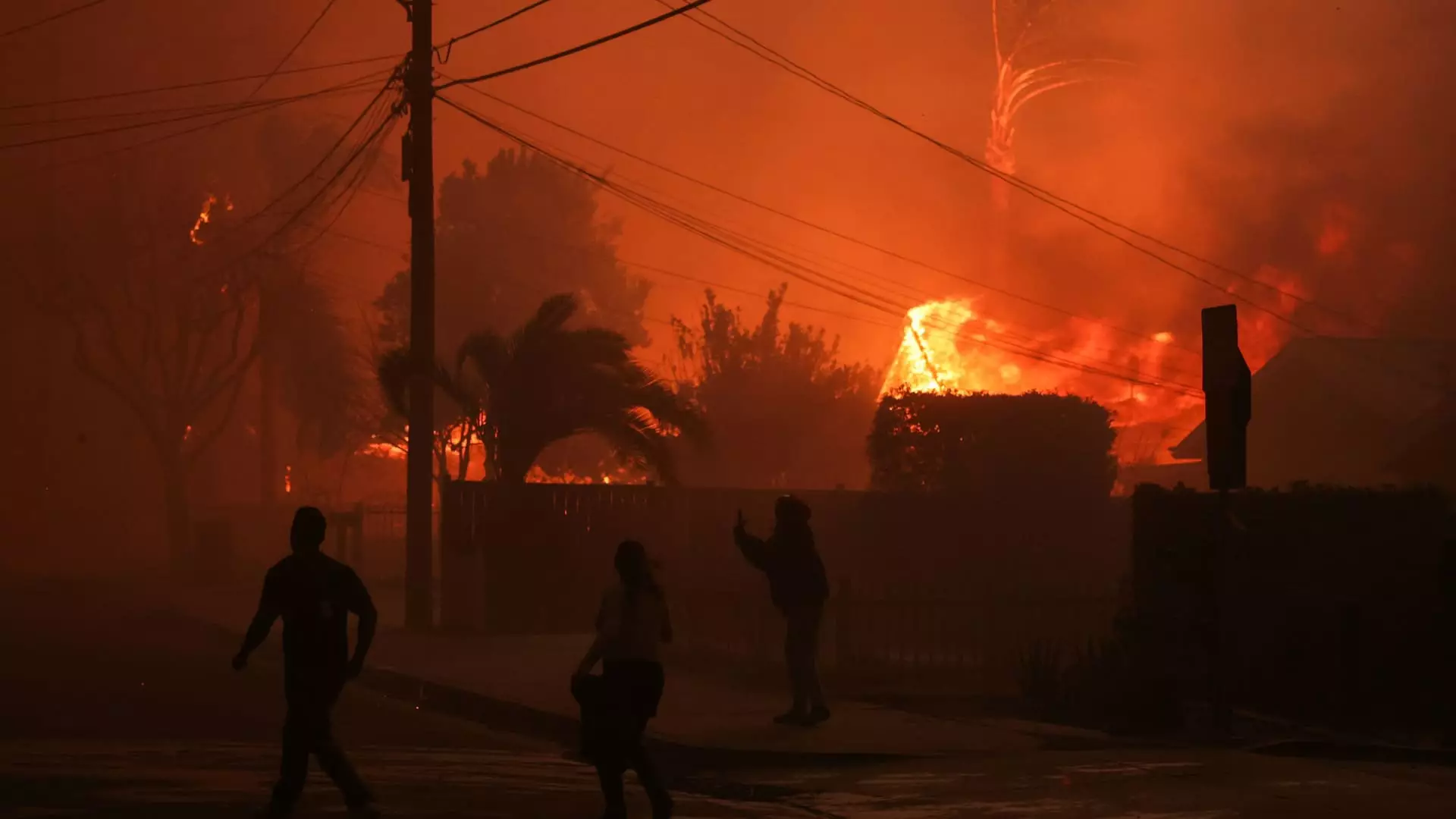Market Reactions Amid California Wildfires: A Closer Look at Edison International

The ongoing wildfires in California have cast a long shadow over the stock market, particularly affecting the shares of Edison International, the parent company of Southern California Edison. The company’s stock took a significant hit, plummeting 12% in afternoon trading on Wednesday. This sharp decline underscores not only the immediate concerns about the wildfires but also the broader implications for utility companies in regions prone to such disasters. Investors are grappling with the dual pressures of ecological threats and the potential financial fallout stemming from utility liabilities.
The dire situation unfolding in Southern California, characterized by rapidly spreading fires and strong winds, has prompted urgent evacuation orders impacting tens of thousands of residents. Sadly, the Associated Press reported at least two fatalities connected to the fires, highlighting the human cost of this natural disaster. With nearly 70,000 Edison customers experiencing power outages, the implications for public safety are immense. The correlation between power utility operations and wildfire incidents raises additional concerns among the populace and investors alike, especially when considering past events where utility equipment was implicated in igniting catastrophic fires.
Historically, California’s utility companies have faced severe repercussions due to wildfires. The bankruptcy of Pacific Gas and Electric Company (PG&E) in 2019 serves as a stark reminder of the financial burden that wildfire liabilities can impose. Although Edison International has not been definitively linked to the current fires, the financial repercussions from previous incidents still loom large over the industry. Analysts have pointed out that while there is no current evidence linking Edison’s equipment to the wildfires, the anticipation of incremental costs related to the fires cannot be ignored.
Recent legislative changes, specifically California’s AB 1054, aim to limit the financial liabilities of utility companies in the aftermath of such disasters. This has provided a modicum of relief and reassurance to investors, as it aims to mitigate the full brunt of potential lawsuits from fire-related incidents. Nevertheless, apprehensions remain palpable among investors, leading to a “sell first, ask questions later” mentality prevalent in the market. Analysts from firms like Jefferies have acknowledged the cautious optimism due to these liability protections, though market reactions suggest that many investors are still treading carefully.
Wider Market Implications
Edison International’s struggles were mirrored in the behavior of other utility stocks within California. PG&E’s shares dropped 4%, while Sempra, with its substantial presence in San Diego, also saw a dip of 3%. Sempra’s subsidiary, SDG&E, took preemptive measures by shutting off power to around 7,000 customers in anticipation of fire risks, a decision that reflects broader concerns about safety versus service continuity.
The interplay of natural disasters, regulatory responses, and investor psychology creates a complex landscape for utility companies like Edison International. As California grapples with its wildfire crisis, the long-term financial and operational strategies of these companies will face rigorous scrutiny. The essence of their resilience will likely be tested repeatedly in the coming years, as both stakeholders and customers demand accountability in an era marked by increasingly frequent climate-related challenges.





